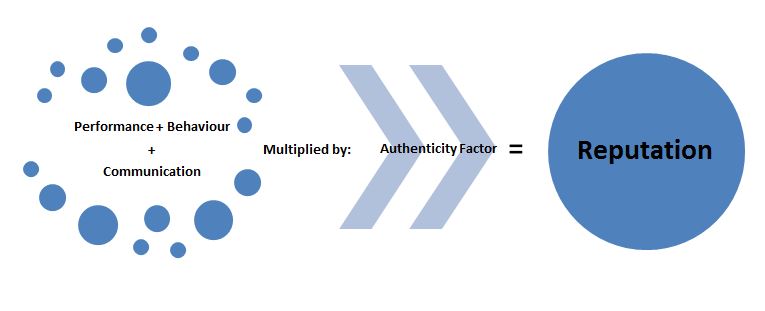Tell a Complete Story
There are two sides to every brand’s story; one is that of the company’s products and services while the other relates to its behaviour and social impact. According to FleishmanHillard’s Authenticity Study 2014, 48% of consumers across the globe indicated that their perceptions of a company are shaped by the qualities related to its products and services. The remaining 52%’s perceptions are based on management behaviour and the company’s social responsibility and impact.
However, no reputation is complete without an Authentic Factor; this is the ability to live up to what that brand’s value and promise is. Converging communications platforms and global economies are creating unprecedented transparency by growing access to information. The ability for corporations to segment audiences and messages is a growing challenge and for organisations to distinguish themselves and achieve sustained success, they must be grounded and stand by their values. This is the basis for the Authenticity Factor – values that tell the brand’s story in a manner that allows its audience to find what resonates most with them thus creating their own connection.
Authors John Doorley and Helio Garcia call this combination of elements the Expanded Reputation Formula (illustrated below).
This equation shows that if the Authentic Factor was at a zero, the other three intrinsic factors (Performance, Behaviour and Communication) would amount to nothing; however a strong authentic factor multiplies the other elements. So, if we take this into consideration, we can safely say a company that makes an effort to strengthen its authenticity can easily enhance its reputation while a disregard for the Authentic Factor could bring the company’s reputation into disrepute.
Companies often focus their resources on telling stories about the benefits of the products and services but this has little impact without relevance and could jeopardise their authentic story by creating a vacuum of information, which consumers will simply go elsewhere to fill.
When shaping your corporate narrative, it is key to take the following considerations into account:
- Know and understand the values and the ‘why’ of the organisation
- Get to know your audience in order to build meaningful relationships
- Remember that an authentic story starts from within your organisation – invest in ensuring that everyone in your team is aligned with one true message
- Tell your complete story – product attributes may increase sales, but they can’t build trust and loyalty
Written by Tebogo Marite
Find Out More
-
Digital Insights Bulletin - October 2024
October 31, 2024
-
Sharon Piehl Wins 32nd Annual John D. Graham Award for Excellence
October 25, 2024
-
Digital Insights Bulletin - September 2024
September 30, 2024



